King John of England


King John of England
(1167-1216)
Duke of Normandy (1199-1204) and King of England (1199-1216)
Family tree
Commemorated on 10 plaques
King John (1167-1216) Granted Lynn a charter in 1204 at the request of the Bishop of Norwich who retained the lordship of the town. Lynn was raised to borough status with the rights of local jurisdiction and government including a merchant gild to oversee commerce and soon a mayor. The royal charter was a milestone in the history of Lynn, reflecting its rapid growth over the previous century to become the fourth port of the Kingdom by 1204. King John began his last fateful journey from Lynn in October 1216 when his baggage train was lost in the Wash as he travelled via Wisbech to Newark where he died. Though the 1204 charter gave the town a degree of political independence it was 'Bishops Lynn' until 1537 when another charter from Henry VIII created 'King's Lynn' ousting 'Our Lord of Norwich'.
Guildhall, Saturday Market Place, King's Lynn, United Kingdom where they granted a charter (2012)
Near to this site stood the King's Houses later known as Beaumont Palace. King Richard I was born here in 1157 and King John in 1167
Beaumont Street, Oxford, United Kingdom where they was born (1167)
The Swan Hotel King John is reputed to have stayed at a hostelry in 1216 and King Charles I in 1646 (after his defeat at Naseby)
The Swan Hotel, 29 High Street, Downham Market, United Kingdom where they reputedly stayed
Hall of the Guild of the Holy and Undivided Trinity Rebuilt in 1422 on earlier foundations, it has a stone floor. The arms of Elizabeth I and James I are over the entrance porch. Assembly rooms were added in 1767, used as a town hall until 1895 when the adjoining building was occupied.In the Regalia room are displayed the King John's cup, the Red Register which is the oldest paper book in the world, a unique collection of charters, a sword of state and four maces.
Guildhall, Saturday Market Place, King's Lynn, United Kingdom where they left a cup and sword (1216)
Guildhall. King John's Cup. King John's Sword. Regalia. Red Register.
Guildhall, Saturday Market Place, King's Lynn, United Kingdom where they left a cup and sword (1216)
Near this spot on the 20th November A.D. 1214, Cardinal Langton & The Barons swore at St Edmund's altar That they would obtain from King John the ratification of Magna Charta.
Ruins of the Abbey of St Edmund - Abbey Gardens, Bury St Edmunds, United Kingdom where they was (1214)
This stone is erected to commemorate the 10 visits to Christchurch by King John during his reign and the 800th Anniversary of Magna Carta on 15th June 2015
Castle Street, Christchurch, United Kingdom where they was
Market Hall (1857) The centre piece of the historic market granted its charter by King John 1204
Chesterfield Market Hall, Chesterfield, United Kingdom where they was (1203)
In Saxon times this town was called Agmodesham The Domesday Book of 1086 records it as Elmodesham with three water mills in use along the banks of the Misbourne In the year 1200 King John granted Aversham the right to hold a market and fair every year for ever Amersham was a Borough for several centuries returning two Members of Parliament for periods between 1300 and 1832 Amersham was an active centre of dissent from the 14th century onwards and some inhabitants suffered martyrdom During the Civil War Amersham strongly adhered to the Parliamentary cause. Oliver Cromwells wife lived here In the 17th century Amersham was the home of prominent Quakers who suffered great persecution Amersham was renowned at the end of the 18th century as a centre of the black lace making industry This stone was erected by the Amersham Society 1972
Old Amersham Market Hall, 19 Market Square, Amersham, United Kingdom where they was (1199)
Site of castle where King John resided whilst in Waterford
Saint Francis Place, Waterford, Ireland where they lived

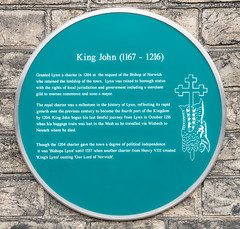
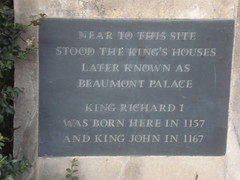
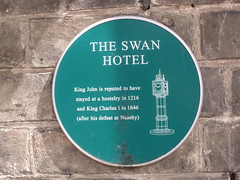

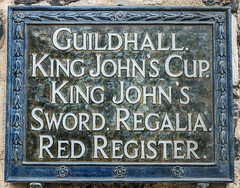

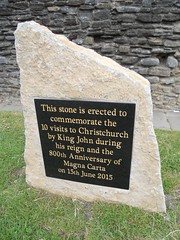
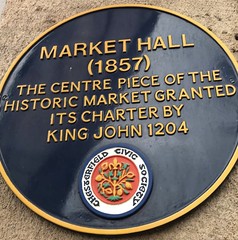
.jpg?width=250)
